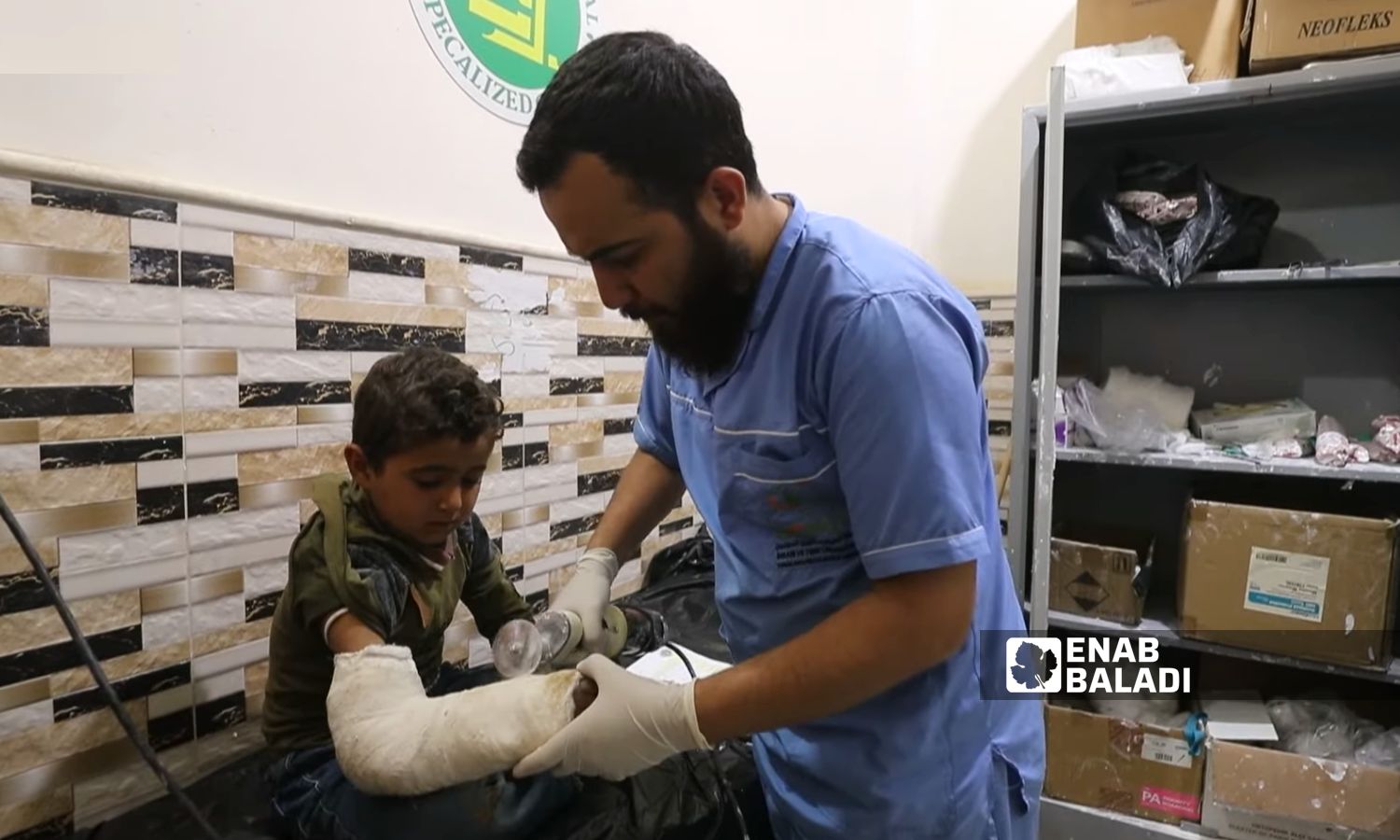



Medical workers in northwest Syria have launched the “Save Lives” campaign to secure urgent support for the region’s hospitals following the reduction of international aid to the health sector, the cessation of services by some facilities, and the threat of others stopping operations.
Doctors involved in the campaign believe that halting support to health facilities could cause a severe humanitarian catastrophe, affecting people’s lives and endangering the lives of many patients with kidney failure and cancer.
The decrease and cessation of support also lead to the deterioration of public health, increased suffering for displaced persons, refugees, camp inhabitants, people with special needs, and the impoverished.
The cessation of support primarily affects emergency cases by forcing patients to travel long distances, which could result in death. It also increases the mortality rate, including among newborns, as infants’ health cannot withstand transportation over long distances.
Idlib Health Directorate stated that international grants funding the health sector in the region have decreased by between 30% and 60%.
By the end of June 2024, 22 health centers in Idlib province will have stopped receiving support, and this number is expected to rise to 95 by the end of the year unless new grants to support these centers emerge.
The United Nations Office for the Coordination of Humanitarian Affairs (OCHA) reported that nearly 160 health facilities, including 46 hospitals, will have to suspend their operations by the end of June 2024 if funding is not increased.
The medical sector in northern Syria is suffering from a shortage of equipment and personnel and is underfunded, with medical facilities being targeted by Syrian regime forces and their allies.
In early October 2023, five medical facilities in Idlib were directly targeted by regime forces, including the Idlib National Hospital and the University Hospital.
Northwestern Syria is home to 5.1 million people, 4.2 million of whom require assistance, 3.4 million suffer from food insecurity, 3.4 million are internally displaced, and 2 million live in camps, according to the United Nations. Local statistics suggest the population ranges between 5.5 to 6 million people.
Patients in the region resort to “charity” pharmacies to obtain free medication, most of which has expired, as they cannot afford to purchase medicine. Enab Baladi observed severe overcrowding at some pharmacies that provide free medication, which are few in Idlib.
if you think the article contain wrong information or you have additional details Send Correction